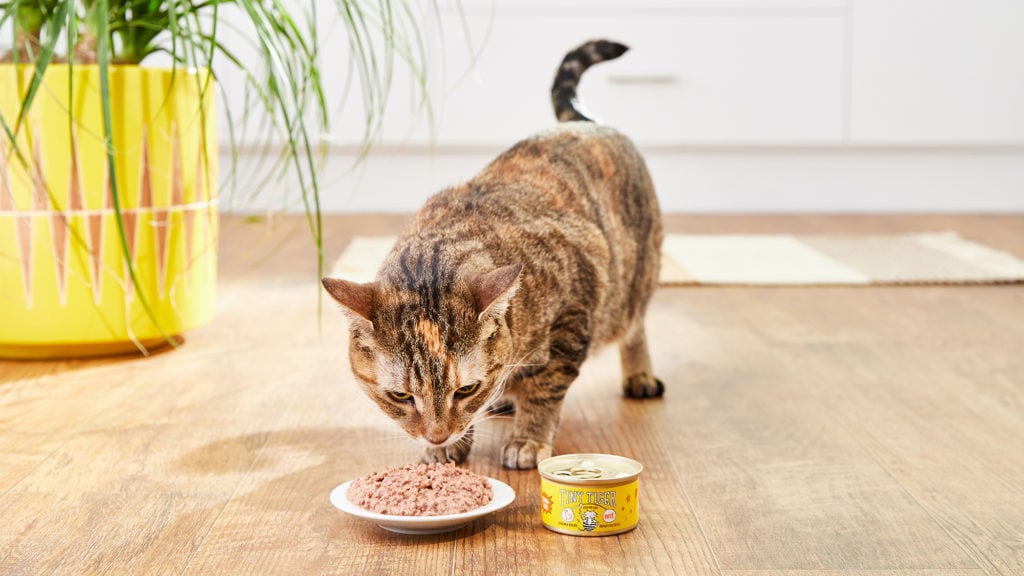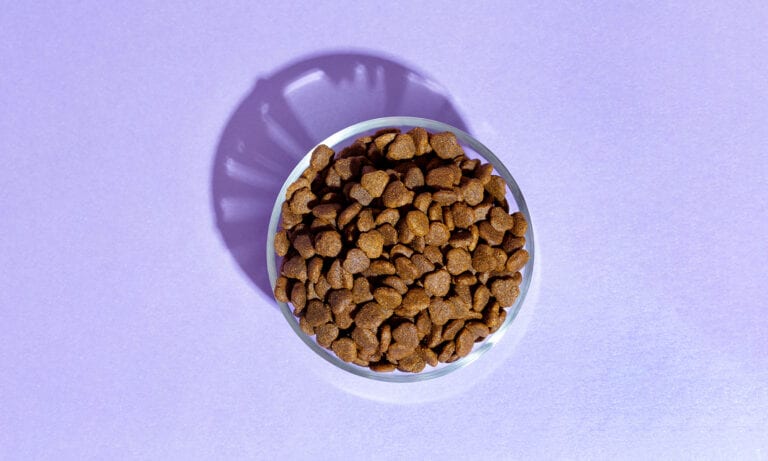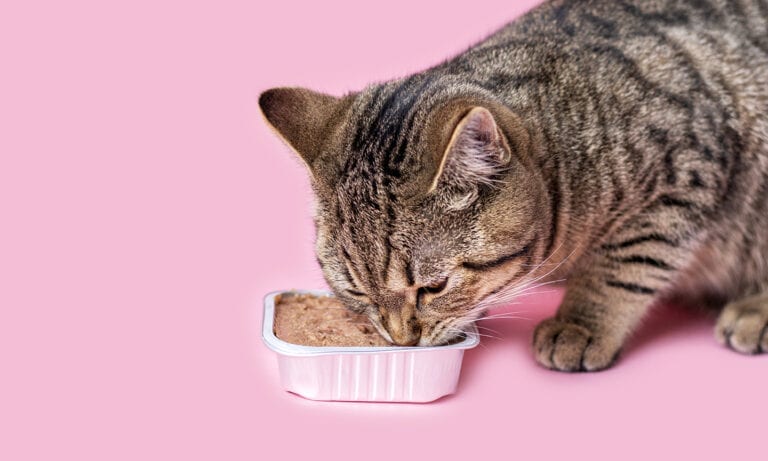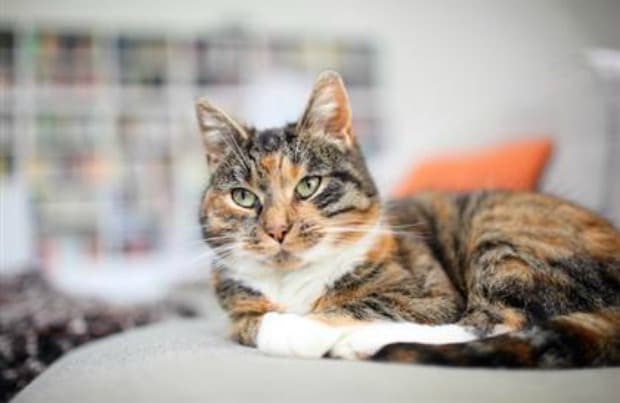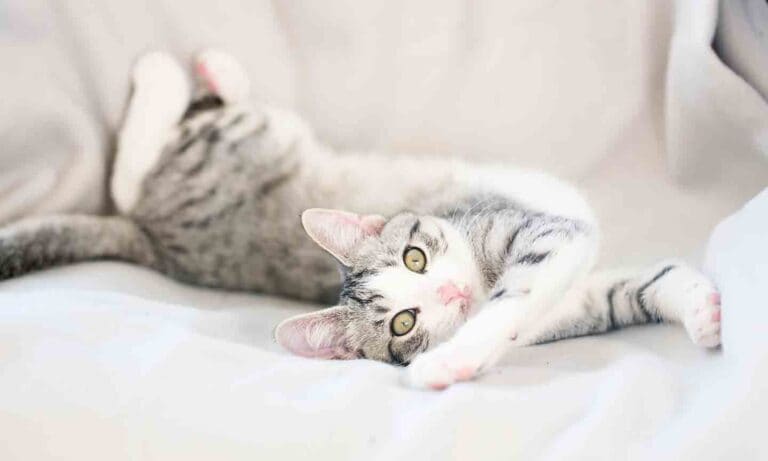Grain-free cat food options are purported to be some of the best cat food options out there. Some manufacturers even go as far as to say grain-free cat foods are closer to a wild cat’s diet. Your cat might act like a big tiger, but should he eat like one too?
Being that your cat isn’t a tiger, nor wild—perhaps, wild at heart—what benefits can a grain-free diet offer the everyday cat? Check out three key characteristics that grain-free cat foods share and that make them well-suited for our feline friends.
1
Protein Is King
Just like their wild cousins, domestic cats (Felis catus) are obligate carnivores. Scientifically speaking, that means your pal thrives on a diet that is rich in animal protein. Granted, we know that the only hunting your kitty gets into is chasing after cotton swabs, but he still needs his daily dose of protein in the bowl.
“When choosing a nutritionally adequate cat food, protein content is the most important characteristic to consider,” says Jennifer Coates, DVM, author and veterinarian in Fort Collins, Colorado.
Dr. Coates emphasizes the importance of choosing a cat food that is high in animal protein. This provides the essential amino acids cats need, regardless of whether there are grains in the recipe or not.
So why make the switch to a grain-free cat food option, if protein is the key? Less guesswork! Grain-free cat foods are usually made with protein as the top ingredient in every recipe to ensure your pal’s protein needs are covered.
2
Fewer Carbs
Low-carb diets are popular among people, but your kitty’s ancestors had been doing them for ages. While the natural diet of wild cats—like your kitty’s great, great, great grandparents—is varied, including small mammals and birds, cats evolved eating a diet solely based on whatever prey they could find. That means carbs were never the main course.
Dr. Coates recommends that carbohydrates—things like wheat, corn, barley, rice, corn and soy—make up only a small amount in any cat’s diet.
Note that carbs don’t stop at grains. Dr. Coates suggests minimizing other carbohydrate-rich ingredients like potatoes, peas and lentils, which technically are grain-free but not carb-free or low-carb. It seems, then, that grain-free cat foods that are also low in carbohydrates are among the best options for our feline foodies.
3
Super for Food-Sensitive Kitties
Another benefit of a grain-free diet for cats is that they can be used to help kitties who are experiencing food allergies or sensitives, which can appear as skin or digestive symptoms like excessive itchiness or loose stools.
“If your cat has a confirmed allergy to a particular grain, then you’ll want to avoid that ingredient in his food,” Dr. Coates says.
Grains like wheat are among the most common food allergens for cats, which means if your kitty seems to be sensitive to grains, it makes sense to opt for a grain-free cat food that’s also free of wheat. Even if your kitty hasn’t been diagnosed with a food allergy by a veterinarian, you may want to choose a grain-free cat food if you start seeing any of the symptoms associated with a food allergy.
If you suspect your cat has a grain food allergy, you can use a grain-free cat food as a DIY elimination diet. Basically, you start feeding a grain-free diet and see if the symptoms go away. It’s a simple, veterinarian-recommended way to test if your cat truly has an allergy to grains.
For a grain-free option, the Tiny Tiger wet cat food line exclusively offers grain-free diets for your little tiger. Flavors include Tiny Tiger turkey and giblets recipe, salmon recipe, and whitefish and tuna recipe.
While there may be a big difference between cats who roam the Serengeti versus those who roam your living room, their diet needs aren’t that different. High-protein cat food diets that also are low-carb can help keep cats fit, healthy and thriving. Grain-free options deliver on these nutritional must-haves and can benefit kitties who are allergic to grains.
Share:
